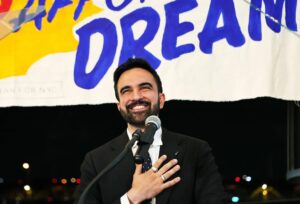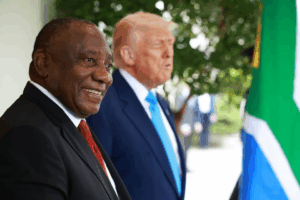| As Muslims, we must ask how we should begin to live up to the Islamic teachings of anti-racism. Kholofelo Molewa gave this Friday Nasiha which was live-streamed on Claremont Main Road Masjid social media platforms recently. Amidst the swirl of an initial pandemic – one which we still haven’t quite figured out yet – we find ourselves living through another type of disease of racism whose presence was re-introduced into our consciousness through the killing of a man whose last words in this dunya was to call out for his mother – who herself had been late for two years. In the initial weeks of the COVID-19 pandemic in South Africa, there were more people who had been killed by state security forces than were victims of the virus. The most publicised victim, Collins Khosa, was killed by members of the South African Defence force whilst sitting in his yard in Alexandra Township. Two men, oceans apart, connected by histories that have often failed to place value on black lives. There are differences of course; whereas in my view, in the US, race plays a more explicit role in the systemic killing and abuse of African American men and women and children. In South Africa the threading of that narrative is slightly more complicated. Khosa was after all, killed by other Black men, who in turn ultimately reported to a ‘black’ government. Simultaneously though, and I say this without equivocation, it’s impossible to imagine a white Collins Khosa, sitting in his yard in Newlands being assaulted and killed by the security forces. The cognitive dissonance would have been too much. So of course, Khosa’s blackness implicates him in his own death much in a similar way that George Floyd’s blackness was central to his dying. In SA though, class often seems to play a co-current role in determining the outcomes and value of one’s lived experience – which is not to say it is entirely different in the US. But in this country, race and class are often part of the same vicious Venn diagram in constantly correlated ways. But I think it would be fair to say, that just because the superstructure in this country contains more black people within it, does not, in of itself, sufficiently de-racialise it. Teachings As Muslims we must ask ourselves how we should begin to live up to the ideals of the Islamic teachings of anti-racism. In my view, we should go further though and ask ourselves, as human beings, what obligations does the current Moment impose on us? How do we as a community meet the energy and intent of these Quranic invocations? Islam’s foundational starting points are that of a community that pursues a social order premised on a theological ethical framework. Fazlur Rahman describes this ‘social order’ as being premised on the Quranic precepts of ‘Islam, iman and ‘taqwa’. In Rahman’s articulation ‘iman’ is ‘rooted in the inner life of a believer’, ‘Islam’ to ‘outer surrender of the believer to God’s Law’ and ‘taqwa’ ‘serving as the driving force of action’. When we speak of “Black Lives Matter” we should consider quite carefully where and how we locate the weight of its meaning into our own already very noisy discourse. Gideon Shimoni, in his book about the role of South Africa’s Jewish community under Apartheid, “Community and Conscience” writes: “South African Jews displayed a phenomenon of self-preservation performed at the cost of moral righteousness.” In my view much of this critique applies to the local Muslim community. In fact, I am of the Arundhati Roy school of thought, who in a recent Financial Times piece argued that the worst possible outcome arising from this crisis would be return to the normal we have just left behind. We need to radically re-order not only the conversations we’re having in our homes, in our masjids, on social media but also our actions. Now is a good time to re-visit areas where we fall short. My advice is to encourage us to have the hard conversation about race and racism within the community and in fact formalise our approaches to eradicating it. Examples of this could be introducing anti-racism teachings into madrassa curricula, having the `Ulama formally condemn issues of racism whilst actively seeking out solidarity. I end with the words of Frantz Fanon, who would have likely had no idea how prescient he was when writing this: “When we revolt it’s not for a particular culture. We revolt simply because, for many reasons, we can no longer breathe” |
*Kholofelo Molewa studied law (LLBHons) and Finance (Masters) from Wits and UCT respectively and works in the development finance space. He is a member of the Claremont Main Road Masjid congregation.


